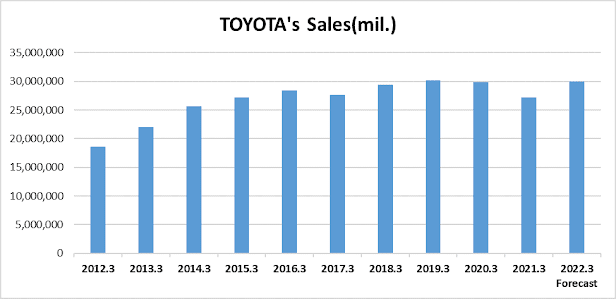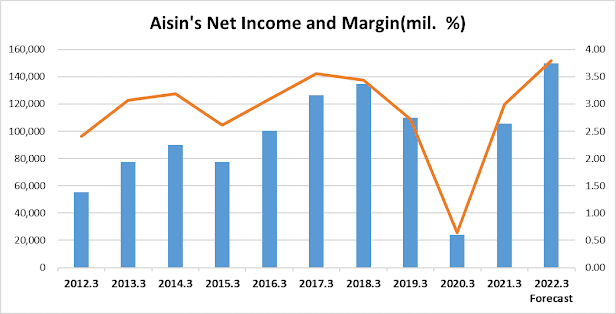Investing in Japan: Toyota shows its strength shrugging off pandemic damage and semiconductor shortage
COVID-19 cases rise in Japan amid state of emergency, Tokyo Olympics and Paralympics to be downsized
The Japanese government has decided to add three prefectures to its state of emergency as coronavirus cases continue to rise. Prime Minister Yoshihide Suga said on May 14 that he decided to expand a COVID-19 state of emergency covering Tokyo and other areas to three more prefectures as infections continue to surge ahead of the Summer Olympics.
Starting on May 15, it will cover Hokkaido, Okayama and Hiroshima in an effort to curb infections and ease the strain on medical systems. The government will also designate three more prefectures as areas where intensive virus measures should be taken which is often called “Manbou”, acronym in Japanese for quasi-emergency to contain the virus.
Daily
new cases have been on the rise nationwide in recent weeks reaching more than
6,000 for the fourth straight day as of May 14. The recent spike in new cases
forces the organizers of the Tokyo Olympics and Paralympics to downsize the
number of foreign officials visiting this summer's games to be less than half of
the original estimate. Training camps for foreign athletes at 45
municipalities, as well as associated cultural exchange events, have been
called off.
Toyota annual net profit jumps 10.3% while it announces further growth forecast
Despite the pandemic debacle, Toyota Motor Corporation announced that the group's net profit for the business year that ended this March rose to 2.2 trillion yen, or approximately 20 billion dollars. It was 10.3% increase from last fiscal year. Toyota has said the Japanese carmaker managed to sell 9.087 million vehicles across its Toyota and Lexus brands. This result exceeded the eight million units the company projected back in May last year, during Japan’s first state of emergency in response to the spread of Covid-19.
As for future outlook, Toyota has bullish prospects for its sales, forecasting a net income of 2.3 trillion yen for the current business year ending next March 2022, up 2.4% compared to the previous term, while other auto manufacturers continue to struggle with semiconductor shortages. Toyota’s confidence is supported by solid hybrid and plug-in hybrid vehicles sales which are the source of incremental profits.
Toyota's production lines and sales were temporarily hard-hit by the coronavirus pandemic. But the company was able to introduce new models as planned, and that helped boost sales in the United States and China, where demand has recovered much faster than Japan.
Toyota Motor Group companies forecast solid financial results for 2022 thanks to their procurement networks to cope with semiconductor shortages
Eight major companies of the Toyota Motor Group such as auto parts manufacturers also expect solid financial results for the fiscal year ending in March 2022. The consolidated net income of seven companies including Denso is forecasted to increase while Aisin, Toyota Boshoku, and Toyota Tsusho are expected to record the highest profits ever.
Sales of auto parts will increase compared to the previous term when new car sales plummeted due to the epidemic of the new coronavirus. Additional investment associated with the electrification of cars and incremental raw material costs put pressure on these companies’ financial results, but cost reduction efforts will offset those additional costs.
As for Denso's business performance, incremental sales of electric vehicle parts such as inverters, and sensors and cameras related to advanced driver assistance systems (ADAS) contributes to financial results. DENSO is also improving profitability by improving the efficiency of research and development.
Aisin, which was launched in April by the business merger of Aisin Seiki and its subsidiary Aisin AW, will expand profits in the tailwind of rationalizing effect of the integration in addition to the increase in supply of its mainstay automatic transmission. Toyota Boshoku, which handles automobile seats, is driving profits by increasing sales of products for luxury vehicles such as sport utility vehicles (SUVs) and minivans.
Although the
automobile industries around the world are struggling to cope with a shortage
of semiconductors, companies in Toyota Group are using their procurement
networks to curb the impact enabling them enhancing their competitiveness.






Comments
Post a Comment